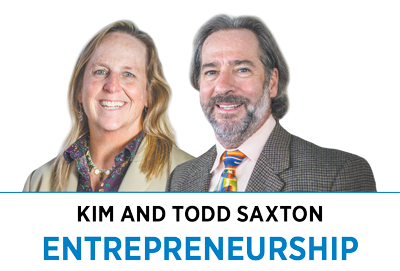Subscriber Benefit
As a subscriber you can listen to articles at work, in the car, or while you work out. Subscribe Now We know the stereotype of entrepreneurs as nerdy types working in their garages or basements to bring their wacky ideas to life. They are going it alone, passionately trying to get this venture out of the garage and off the ground.
We know the stereotype of entrepreneurs as nerdy types working in their garages or basements to bring their wacky ideas to life. They are going it alone, passionately trying to get this venture out of the garage and off the ground.
Unfortunately, COVID-19 only increased our tendency to go it alone and work solo from home. But that is not the best way to start a company. Central Indiana provides many opportunities to connect and engage with the local venture community and like-minded colleagues. Today, we want to make sure you know about the local incubators, accelerators and venture studios whose missions are to help entrepreneurs start and grow their companies.
Forbes has ranked Indiana in the top two states for starting a business for the last few years. We have so many great resources to help people getting started. The Indiana Economic Development Corp. has several programs to help entrepreneurs: Check out IEDC resources at ConnectIND.com. But entrepreneurs can go beyond just web surfing; they have physical places to go for real help.
Incubators are typically aimed at entrepreneurs just starting their ventures. They offer programming and a location that builds the community to help people “incubate” their ideas. Incubators typically do not offer funding or take equity in a startup. Instead, they offer mentoring, access to their networks, and a place to be co-located with others doing this very hard work. The analogy of a bird sitting on an egg until it hatches works pretty well here.
In downtown Indianapolis, 16 Tech Innovation District is an incubator with a coworking space, makerspace and food incubator. The Indiana Biosciences Research Institute at 16 Tech is designed to help life sciences startups make progress by offering them space and laboratories. The Indiana Center for Biomedical Innovation, on the Indiana University Health Methodist campus, focuses on helping IU faculty move their ideas from bench to bedside. And there are centers on the Indianapolis perimeter: Purdue Innovates in West Lafayette, the Flagship Enterprise Center in Anderson and The Mill in Bloomington.
Accelerators are aimed at startups that have established a foothold and are looking to scale by figuring out how to grow faster. They tend to operate cohort-style programs with a specific time frame (like eight weeks or 13 weeks). You work through the next steps of developing your startup with other companies. It culminates in some type of showcase or demo day where all the companies in the cohort pitch to investors. Accelerators often provide some funding in exchange for equity in the startup.
The three main Indy accelerators are Techstars Sports Accelerator (starts in June), The Heritage Group Hardtech Accelerator (starts in August) and gBeta by gener8or (has multiple cohorts each year). Elevate Ventures, the venture capital arm of the IEDC, offers an Origins program that gains startup access to a pitch competition with funding for the top startups. Local Initiatives Support Corp. offers support for underrepresented entrepreneurs through its NICHE 2.0 Accelerator program. Purdue Innovates and The Flagship Enterprise Center also offer accelerator programs.
Venture studios actively build a company around a new idea by managing the day-to-day aspects of the startup. They might come up with their own ideas or work with an entrepreneur who has an idea. Venture studios take the initial idea and do the customer discovery work to validate it. Then, they help build out the product, develop a go-to-market strategy, and provide the HR, finance, marketing and design work to launch a company. They typically recruit a CEO/team for the startup that may or may not be the entrepreneur who had the original idea.
Indianapolis has three venture studios: High Alpha for B2B software-as-a-service ideas, Next Studios, and Boomerang Studio for connected care ideas, including tech-enabled medical devices, health care informatics and improved care models. In exchange for the work they do, venture studios typically take a large equity position in the startup and fund the early work that needs to be done.
We should also note the area’s numerous coworking spaces, like The Speakeasy, which offer space and some limited resources for startups. Think of it as a continuum, from coworking to incubators to accelerators to venture studios, based on the intensity and depth of the resources offered.
Clearly, entrepreneurs in central Indiana do not need to go it alone. They have great choices for engaging with like-minded others, learning what they need to know and do, getting help, and pitching fundable ideas with others. We are all still dealing with how communities can come together post-COVID. Midsize to large organizations get a lot of press about if and how they are bringing their workforce back to the office. But these challenges are as important for entrepreneurs, if not more so.
Seek out the places where you can accelerate the creative collisions that will bring your ideas to life. Collectively, these options can help you get from egg to flying eagle—maybe even a unicorn!•
__________
Kim Saxton is a clinical professor of marketing at IU Kelley School of Business Indianapolis. Todd Saxton is an associate professor of strategy and entrepreneurship at IU Kelley School of Business Indianapolis. They are co-authors of “The Titanic Effect: Successfully Navigating the Uncertainties that Sink Most Startups.”
Please enable JavaScript to view this content.
